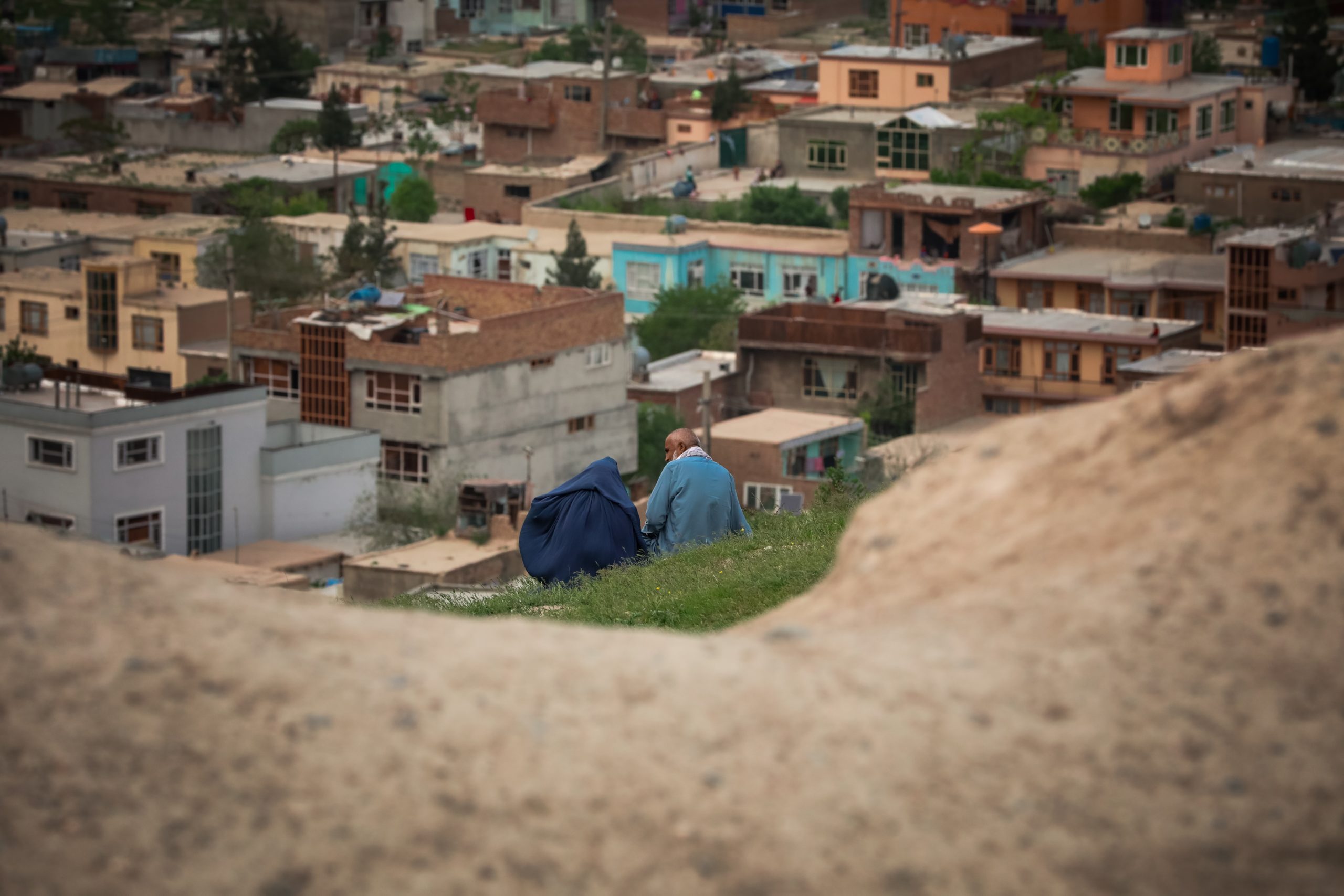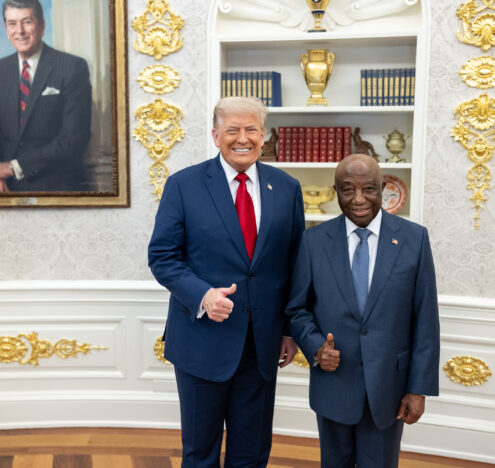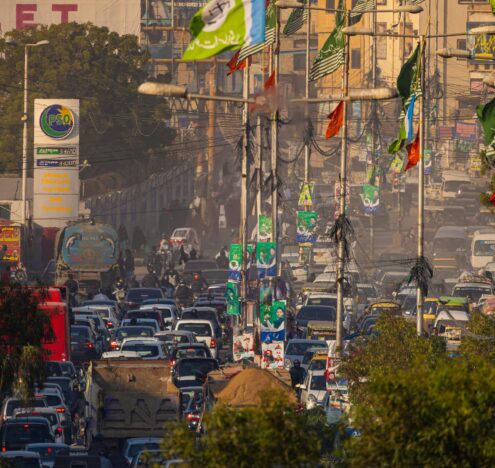This month CBS premiered the comedy “The United States of Al,” introducing us to “Al” a fictional translator who worked with the Marines in Helmand, Afghanistan. “Al” has a lot in common with Fayaz, a translator I spent time with over the past years, who also worked for the US military. Unlike “Al,” Fayaz has not had a Marine pressuring the government to issue him a visa. And with the Biden administration announcing the complete withdrawal of American troops from Afghanistan by September 11, 2021, the clock is ticking for Fayaz and thousands like him.
In the coming months, the Biden administration will need to determine what it will do with the tens of thousands of real Afghans who worked as translators or in similar roles supporting the US government in Afghanistan or risk having them killed for their service. “Al” like 18,000 Afghans already made it out through the Special Immigrant Visa (SIV) program, meant to supply visas to those at risk. The problem is that the SIV process is poorly designed to begin with and has a backlog of another 18,000 applicants. Set up originally in 2006 and originally designed to help perhaps a thousand translators in Afghanistan and Iraq, the program is currently so broken, that those at risk are reluctant to even apply.
A CRIPPLED PROCESS
According to the most recent available figures, the State Department calculated that the average processing time for an application is 904 days. Reality, however, is quite different. It takes a very long time — years often — to gather documents, and complete all the required, tedious steps, resulting in a processing time of 3 to 6 years. A recent review by the US Department of State Office of Inspector General found only one analyst processing the security assessment of all the applications. The Biden administration has not announced any changes to the current personnel, and while they have announced a formal review of the process, unless this review proposes sweeping changes, it is likely to have little impact.
Two court cases are currently pending in US District Court filed by Afghan and Iraqi translators frustrated with the slowness of the process. They are petitioning the court to require the government to adhere to the nine month processing timeframe that Congress laid out in setting up the program. It’s not clear that even with large scale procedural changes that the government could meet the nine month requirement, but even if it did, this is not time that those in danger have.
THE APPLICANTS
As part of the Costs of War Project at Brown University interviews were conducted of over 150 Afghan translators and other civilians like Fayaz who worked in support of the US government. These individuals were either actively applying for a visa, were considering applying, or had received them and then immigrated to the United States.
Nearly everyone described the process as confusing and opaque at best. Fayaz, for instance, recounted how the application requires a letter from a direct supervisor. But he was no longer in touch with his supervisor and had wasted several months trying to contact him on Facebook. In other cases, an imprecisely worded reference letter, is likely to get sent back, costing valuable weeks. Threat statements are also required, but what should an applicant do in cases like Fayaz’s, where the threats were made verbally to members of his family? Fayaz had written his own statement, but said he knew others that had purchased fake “Night Letters,” threats supposedly written by the Taliban, typically dropped off in the middle of the night. Now enterprising brokers looking to take advantage of those preparing to flee the country will write fictitious threats to help applicants.
As the United States prepares the logistics of pulling out its troops, it also needs to prepare for the widespread targeting of those that supported the US presence. In its form, the SIV program, the only current mechanism for supporting these Afghans, is not sufficient.
In the CBS comedy, “Al” is helped by one of the Marines he worked with, but most Afghans in these positions don’t have such advocates in the United States. And, even worse, many of the applicants interviewed described how the process of applying for the visa made them even more likely to be targeted by anti-government groups and criminals. Some interviews noted how a family that was considering migrating to the United States is assumed to be wealthy and more likely to pay ransom if someone is kidnapped.
In another quirk of the system, SIV recipients can be accompanied by their children who are below 18, but not those above. One father recounted the painful decision to immigrate with two of his younger children, leaving the two older ones behind. These children were now in even more danger since everyone in the neighborhood knew they had family in America.
One of the central issues is that the program does not differentiate between those who are in danger of immediate harm and those who might just be experiencing constant low levels of harassment. As a result, those that are most in danger are served least by the program. They don’t have time to wait for their applications to be processed and are forced to take illegal routes, relying on brokers to smuggle them across Iran and hopefully to Europe. The riskier route is to try to sail to Australia. In recent years, No One Left Behind, an organization advocating for these individuals, has been contacted by Afghans who are now in 30 different countries, scattered across the globe. This group and others like Red T, Friends of Afghanistan, and the UK-based Suhla Alliance do important advocacy work, but the impact of these groups is limited due to the ineffective nature of the SIV program.
AN URGENT NEED FOR EXPEDITION
The most disheartening thing is that it doesn’t need to be this way. The protection of these Afghans has received wide bipartisan support. It’s the process to support them that is broken. And there are alternatives. After the Vietnam War, over 100,000 Vietnamese were airlifted to Guam where their cases could be safely processed. Many then immigrated to the United States, while a smaller number returned to Vietnam. A similar process, along with expedited processing could save thousands of lives.
Regardless of whether all troops pull out of Afghanistan in the coming months, the failure of the United States and Afghan government to create a secure country means that every Afghan that worked for the United States over the past twenty years is at risk. As the United States prepares the logistics of pulling out its troops, it also needs to prepare for the widespread targeting of those that supported the US presence. In its form, the SIV program, the only current mechanism for supporting these Afghans, is not sufficient.
Noah Coburn, is a political anthropologist focusing on Afghanistan and an Associate Dean and faculty member at Bennington College. He has spent over five years conducting field research in Afghanistan and, most recently, is the author of Under Contract: The Invisible Workers of America’s Global Wars




















